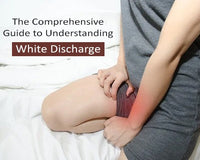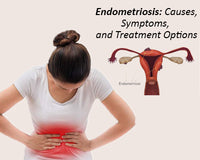Introduction
When it comes to reproductive health, there's a myriad of complexities to unpack. One condition that often pops up on the radar, especially for women, is endometriosis. Even as we tip-toe around the nitty-gritty, a common question springs up: Can endometriosis cause infertility? It’s like trying to find a needle in a haystack, but fear not! We've dug deep into the maze to bring the facts to light.
1. What is Endometriosis?
Before jumping into the connection between endometriosis and infertility, it's essential to grasp what endometriosis actually is. Essentially, endometriosis is a condition where the tissue similar to the lining inside the uterus, known as the endometrium, starts to grow outside the uterus. It's a bit like having an unexpected guest at a party – you didn't invite them, but there they are!
2. The Connection Between Endometriosis and Infertility
Can Endometriosis Cause Infertility?
The short answer is yes. Endometriosis can potentially lead to fertility challenges. But why?
- Obstruction: The growth of endometrial tissue outside the uterus can block the fallopian tubes.
- Inflammation: The condition might cause inflammation, possibly affecting the egg quality or implantation process.
- Altered pelvic anatomy: Over time, endometriosis might lead to scar tissues, thus altering the natural anatomy of the pelvic region.
But hold your horses! While there's a link, not all women with endometriosis will face infertility. It's a bit like saying all ice creams are vanilla – it’s simply not true!
3. Combatting Endometriosis-Induced Infertility
Don't throw in the towel just yet! There are several treatments available to manage endometriosis and its potential impact on fertility.
1. Surgical procedures: These can remove endometrial growth and scar tissue.
2. Hormonal treatments: These can regulate the growth of endometrial tissue.
3. Assisted reproductive techniques: Like IVF (In-vitro fertilization), these techniques can help bypass some of the fertility challenges.
Remember, it’s always about finding the right fit. Kind of like shopping for jeans – one size doesn't fit all!
Conclusion
Endometriosis and infertility are two complex subjects intertwined in a dance. While they might be related, having endometriosis doesn't seal one's fate to infertility. Knowledge, timely intervention, and the right support can pave the way forward. Remember, life's not always about the cards we’re dealt, but how we play them!
FAQs on Endometriosis and Infertility
Q1. Does having endometriosis mean I'm infertile?
No, not necessarily. While there's a connection, many women with endometriosis can conceive naturally.
Q2. Is surgery the only solution to tackle infertility caused by endometriosis?
Surgery is one option, but there are also hormonal treatments and assisted reproductive techniques to consider.
Q3. How common is endometriosis in women?
It's estimated that 10-15% of women of reproductive age have endometriosis.
Q4. Does endometriosis always cause pain?
While common, not all women with endometriosis experience pain.
Q5. Is IVF effective for women with endometriosis?
IVF can be an effective solution, but the success rates vary depending on the severity of endometriosis and other factors.
Q6. How is endometriosis diagnosed?
Diagnosis often involves pelvic exams, ultrasounds, and sometimes laparoscopy.
Q7. Are there lifestyle changes to manage endometriosis?
Yes, certain dietary and exercise regimens can help manage the symptoms.
Q8. Is there a known cause for endometriosis?
The exact cause remains a mystery, but genetic, immune system-related, and hormonal factors might play a role.
Q9. Can endometriosis reoccur after treatment?
Unfortunately, it can. Regular monitoring by healthcare professionals is essential.
Q10. Are there any preventive measures for endometriosis?
There's no surefire way to prevent it, but hormonal birth control methods might reduce the risk.






